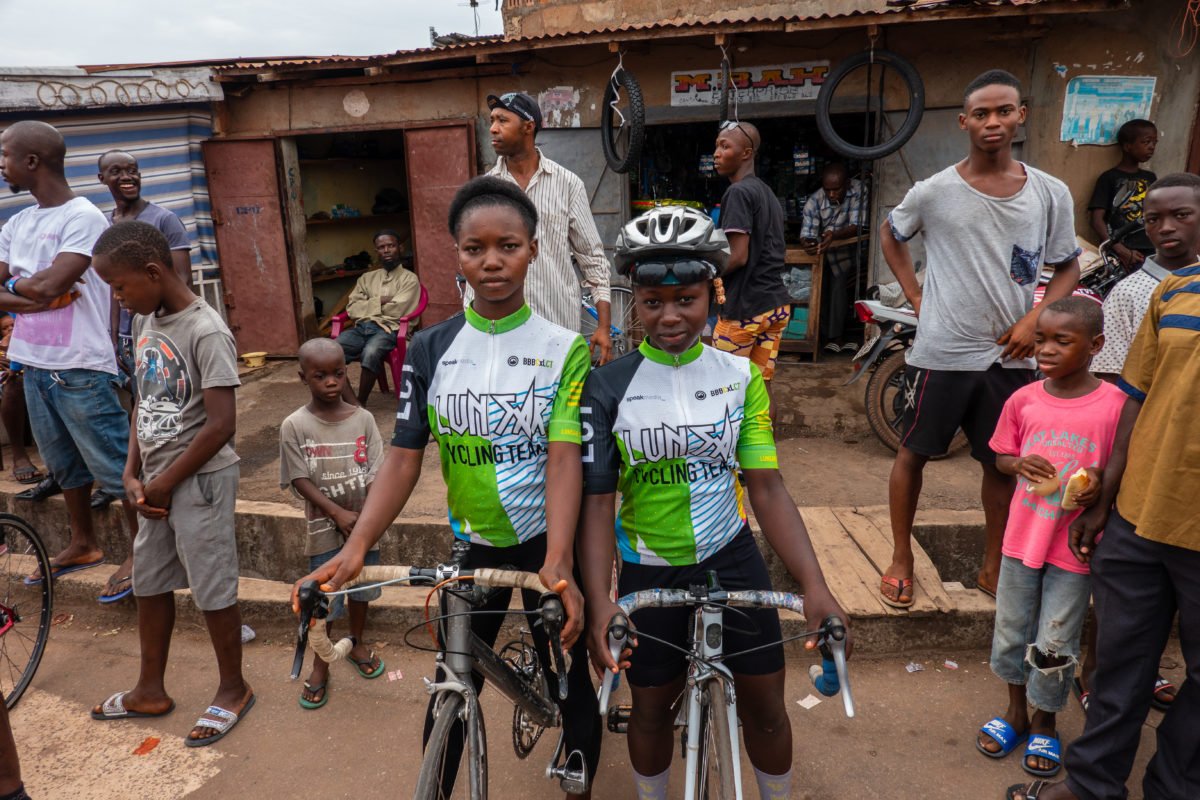
Cyclists in Sierra Leone ride for much the same reasons as cyclists anywhere else; for the health benefits, to socialise, and to get around.
The difference, however, is in just how vital the bicycle can be. In the UK, cycling is a choice, but for most people in Sierra Leone – for whom car ownership is a remote, almost impossible notion – the bicycle provides essential transport; to work, to school or to the next town.
Most of the bikes you’ll see in Sierra Leone are pretty beaten up. Usually they are old donated hybrids that have made their way across the ocean on shipping containers from the UK and USA. Charities like Village Bicycle Project in the US and Re-Cycle in the UK are responsible for most of the two-wheeled transport you see in the country.But what about racing cyclists?
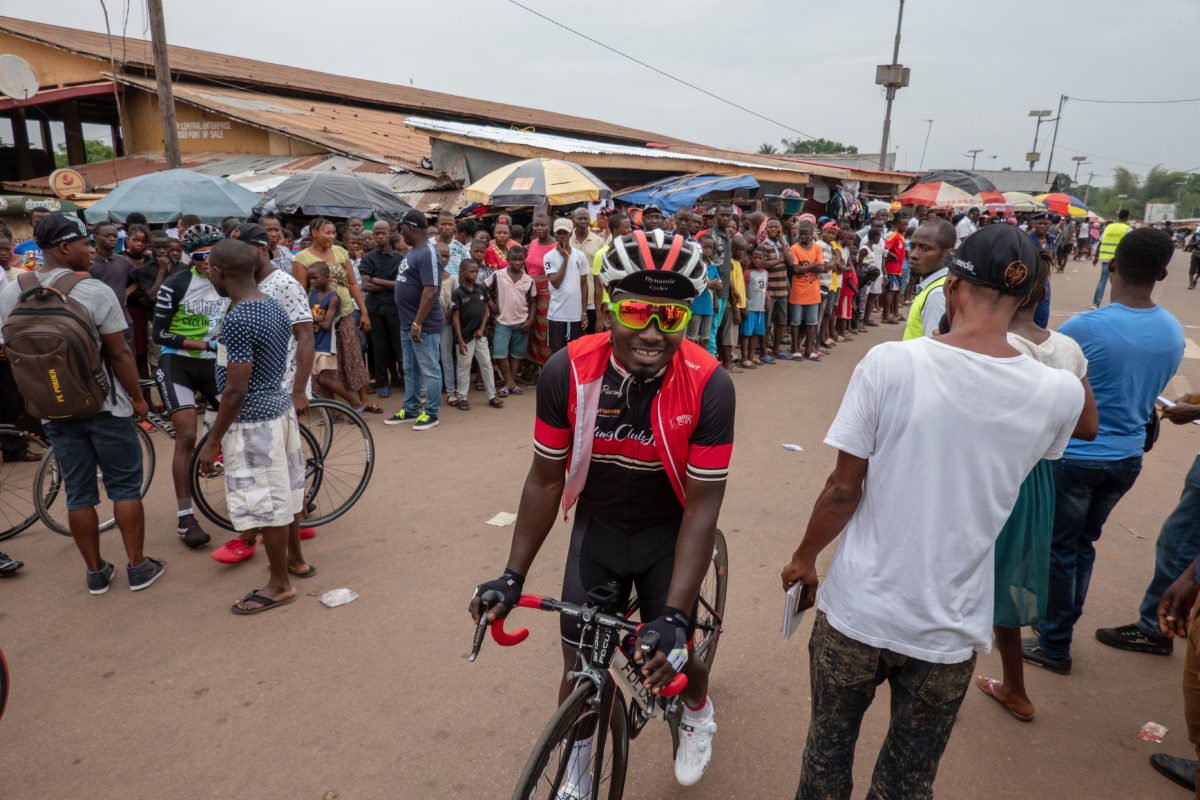
There aren’t many competitive cyclists in Sierra Leone – if you were being generous, you might guess at around 200 in a population of 7 million. Most of them are members of a handful of clubs in Freetown, the country’s capital, while the largest single club is the one in Lunsar, about two hours drive away. The towns of Makeni and Bo also have a few riders.
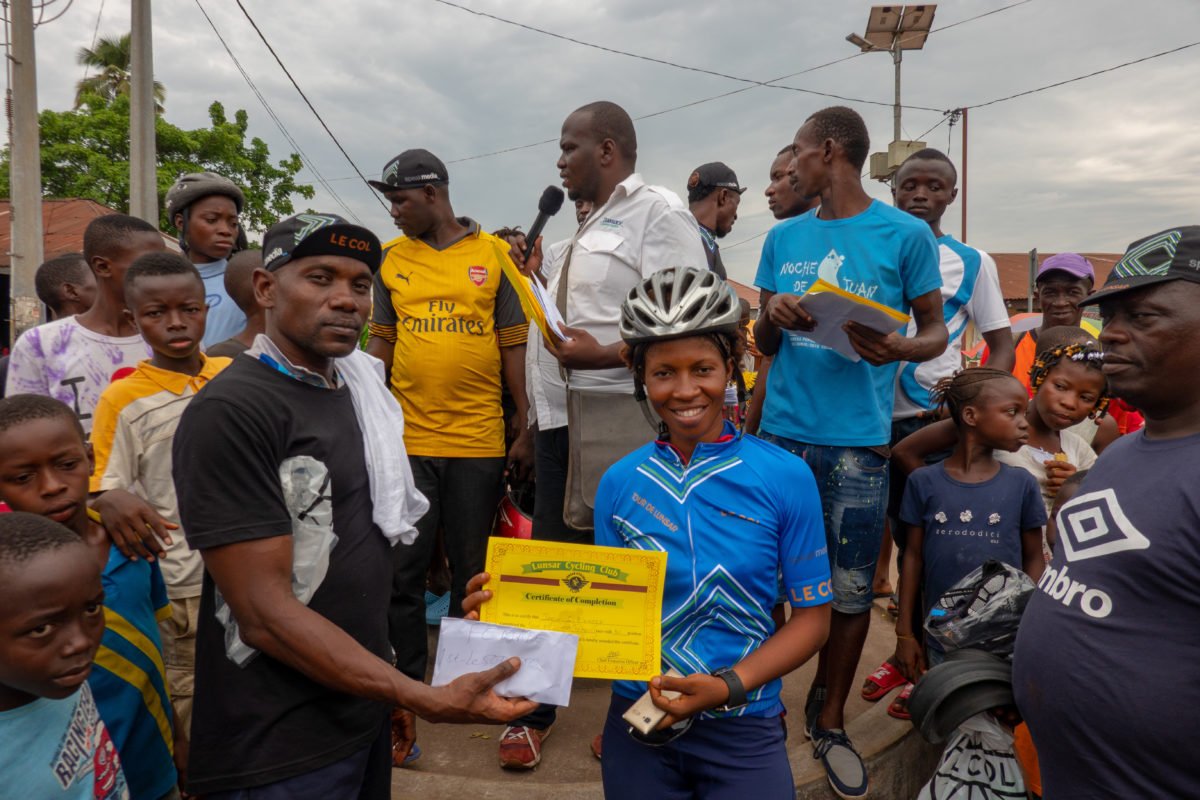
Races are few and far between, and many of them are organised in what we in the northern hemisphere would call the ‘off-season’, between November and January. This is because the weather in July and August makes it impossible to ride outdoors – with heavy monsoon-like rains basically bringing everything in Sierra Leone to a grinding halt. When they do happen, races are chaotic affairs. There isn’t the technology easily available to time or track the racers, just a large crew of marshals positioned around the course and counting off bib numbers. It leads to some quite chaotic finishes, especially those races that end with a closing circuit. There are no finishing times as we’re used to seeing, just a ranking of placings.
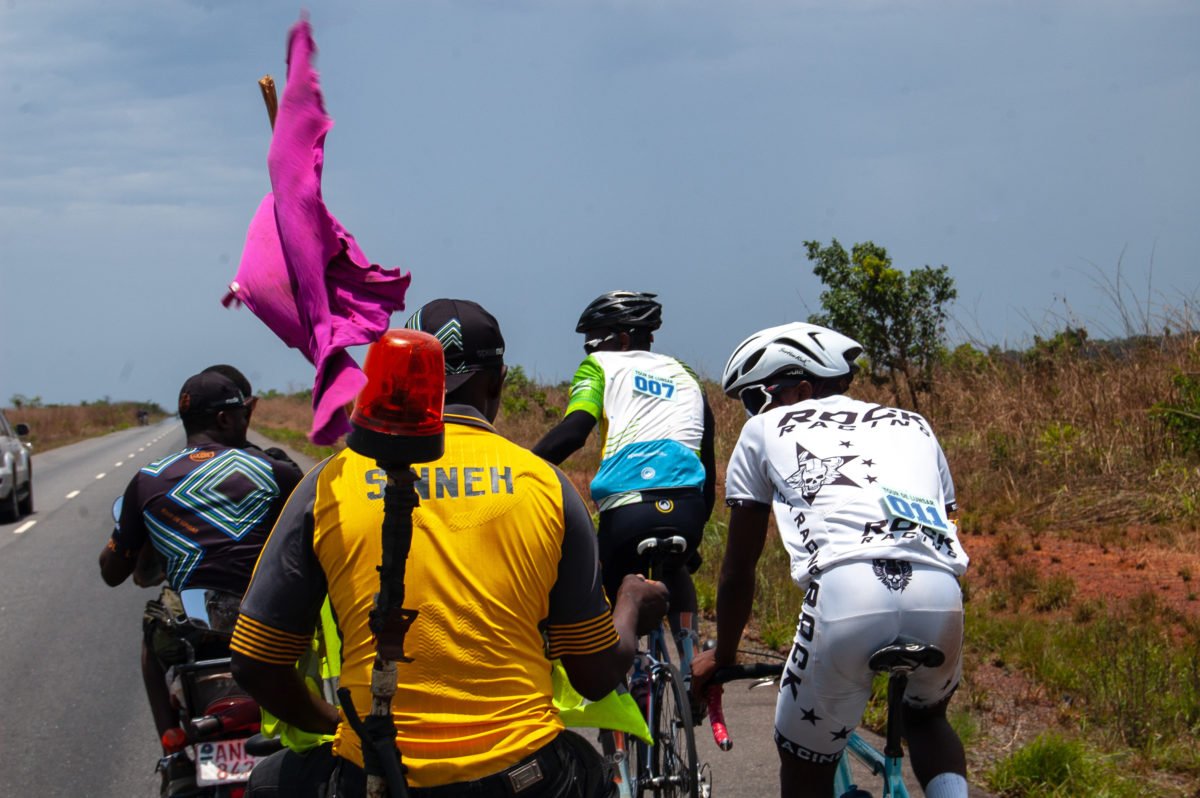
The bikes available for racing are in pretty bad nick, generally speaking. The charities who send bikes tend to prioritise the utilitarian hybrid or hardtail MTB bikes over road bikes – understandable in a country where not all the road surfaces are even paved, let alone flat. The riders who want to race must seek out frames and componentry, as and when they can – often waiting months for the right item to turn up in the local bike shop. Many of the race bikes in Sierra Leone have seen very long service, having been owned by multiple riders at various times. If you’ve been in the race scene long enough, you can identify most bikes and rattle off the particulars of their owner history.
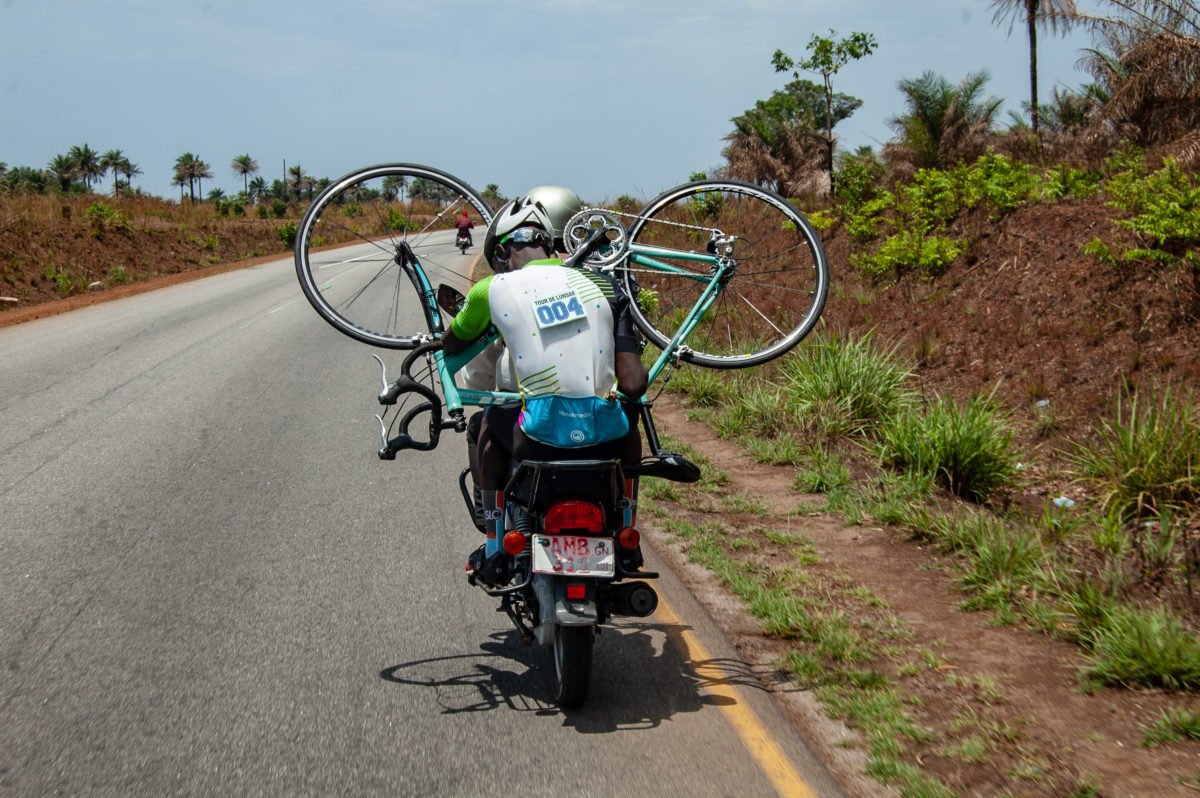
In Sierra Leone, there are bigger concerns than getting out on your bike for a couple of hours of training. The beautiful and fundamentally peaceful West African country has been dealt some cruel blows in the last 25 years, from civil war to a destructive outbreak of the Ebola virus. Training has to take a backseat sometimes – many households’ only source of food is through subsistence farming, so time must be given to bringing in the daily bread. Nevertheless, some dedicated young men and women still find the time to train, heading out in the early hours of the morning to ride laps of their town centre or farther out of town onto the few asphalt roads that exist in the country.
It’s inspiring to know that wherever cyclists happen to be in the world, the passion is there and the desire to make sacrifices for the sport we love remains universal.